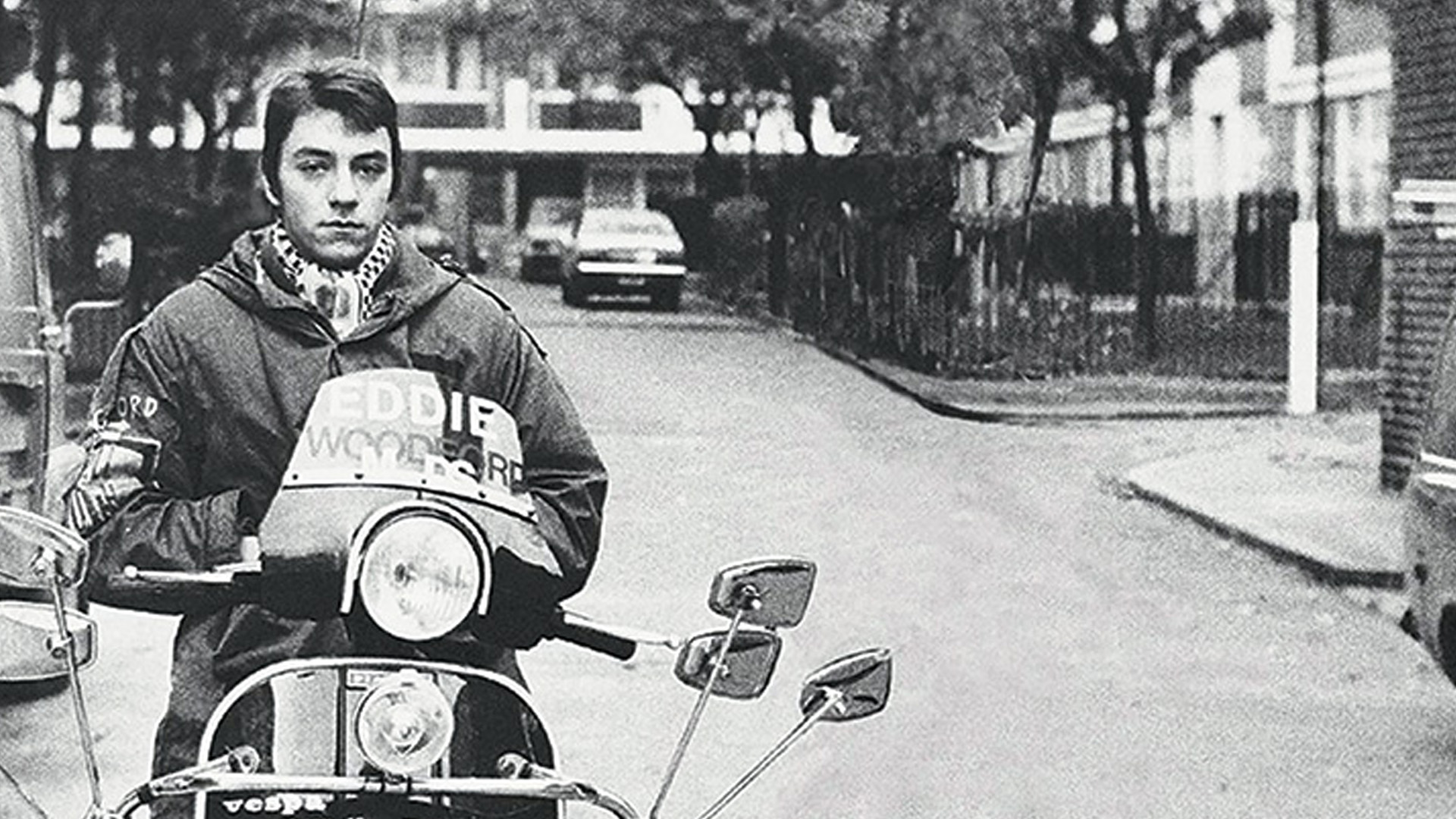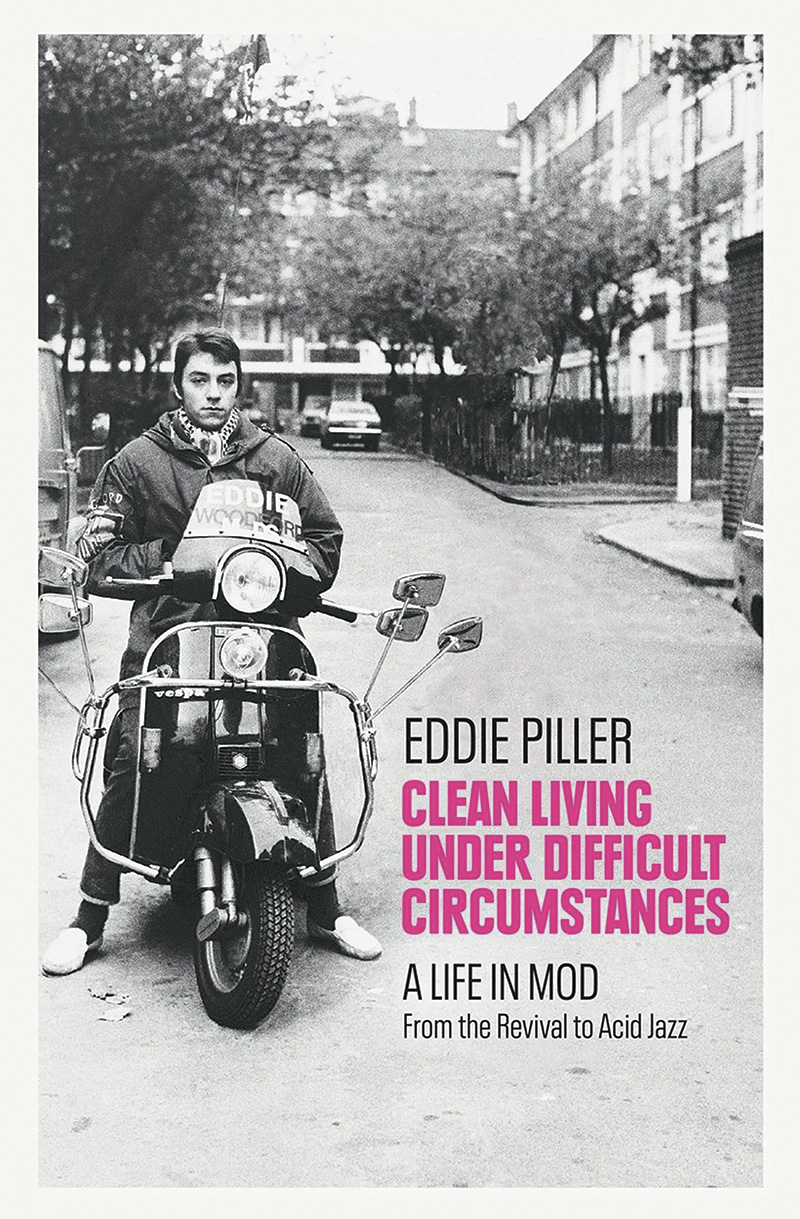About halfway through his new memoir, Clean Living Under Difficult Circumstances, Eddie Piller recalls a report card he received from his headmaster at age 13. “If he continues like this, I fear Edward will waste his not inconsiderable talents…” it reads. “Edward is at a crossroads, and at this rate I can see him becoming either Head Boy or being expelled.” Although he predictably didn’t choose the former path, instead zeroing in on what he calls “the important things in life: clothes, music, fanzines and scooters”, Piller’s not inconsiderable talents directed his life in what would be a far more entertaining direction.
Since that foreboding prediction, Eddie Piller has accumulated many hats. He is a DJ, music producer, fashion designer, journalist, club founder and radio presenter, and is perhaps known best for co-founding the Acid Jazz record label with Gilles Peterson in 1987. Acid Jazz was so influential that it now lends its name to an entire musical genre; a fusion of jazz, funk and soul music, spearheaded originally by bands like The Brand New Heavies, Jamiroquai and Young Disciples, perpetuated still by the James Taylor Quartet, Secret Night Gang and The Filthy Six.
In anticipation of the book’s release, Piller remarked, “It’s funny, but every time I mention that I have my memoirs coming out, people think it must be about Acid Jazz. This is much more exciting. It’s about real life.” As its subtitle, From the Revival to Acid Jazz, suggests, the years beyond the record label’s fortuitous beginnings are not covered here, although a glimmering treasure chest of stories from that era feels tantalisingly close. Instead, it focuses primarily on the writer’s childhood, teenage years and, most crucially, his discovery of the mod way of life, to which he’s still committed today. Piller credits meeting other young mods at punk gigs in the late 1970s with his conversion to the mod lifestyle, but he also describes his childhood home as an influence – his dad was a jazz obsessive, and his mother ran the Small Faces’ fan club (Piller recalls being “bounced on Steve Marriott’s knee” as a child). When he brought his first scooter home, expecting his parents to castigate him, his father congratulated him warmly.
- Blue Note Re:imagined II goes back in time to forge future paths
- The legendary Brian Auger has a goldmine of tracks and rock anecdotes
- Voices of Bishara takes British jazz in an innovative new direction
At its core the book is a choppy, audacious love letter to the UK’s mod revival as it began to emerge in the late 1970s; a throwback to the subculture that had originated in the early 1960s, characterised by an obsession with sharp fashion, music and scooters. In the introduction Piller firmly ascribes mod’s origins to The Who’s original band manager Peter Meaden. Later on he attributes the second wave as being instigated entirely by one man, Paul Weller – “Like Dr Frankenstein,” Piller says, “[Weller] created a monster that made a life for itself.”
As Eddie Piller’s interest in mod culture transmutes from a curiosity to an obsession, he places the reader in the headwind of an electrifying moment in British history, when fashion choices were demonstrative, even tribal, and music preferences were even more so. Somewhere between hedonism and nihilism, a tempest of drugs, gigs, all-nighters, scooter rallies and an image of London buzzing with youthful galvanism, convening at tea rooms that stayed open all night. The advent of punk during this era is well documented, but the second wave of mod is perhaps less well understood, despite having its own strictly defined social and cultural architecture which still represents a large part of Britain’s music scene and sartorial aesthetic. This book feels vital in that regard.
Get the latest news and insight into how the Big Issue magazine is made by signing up for the Inside Big Issue newsletter










